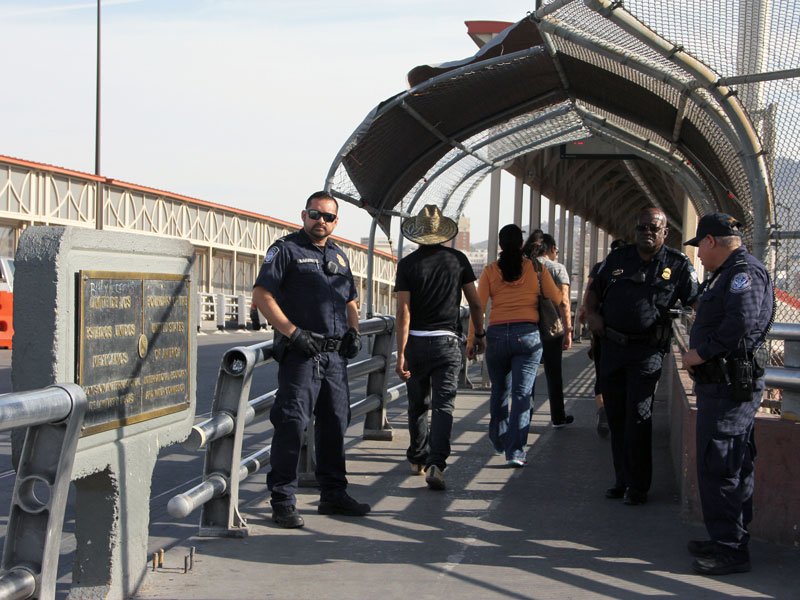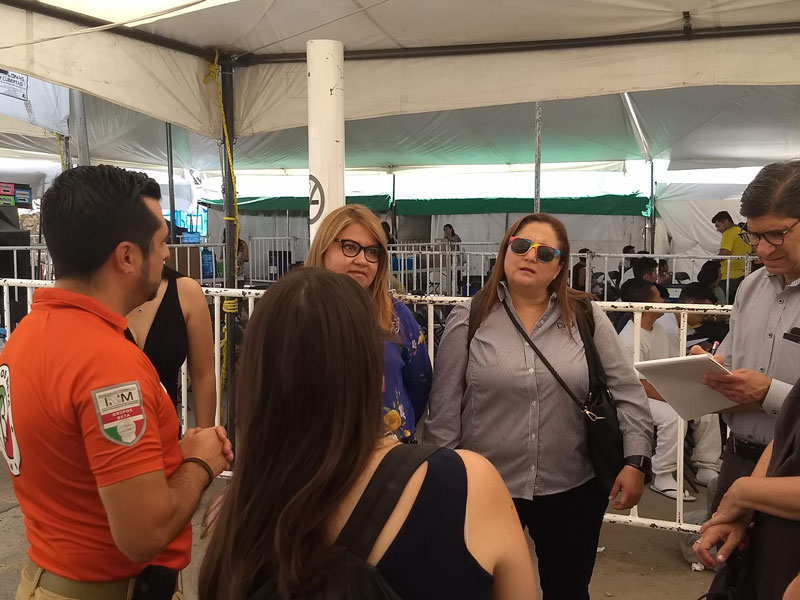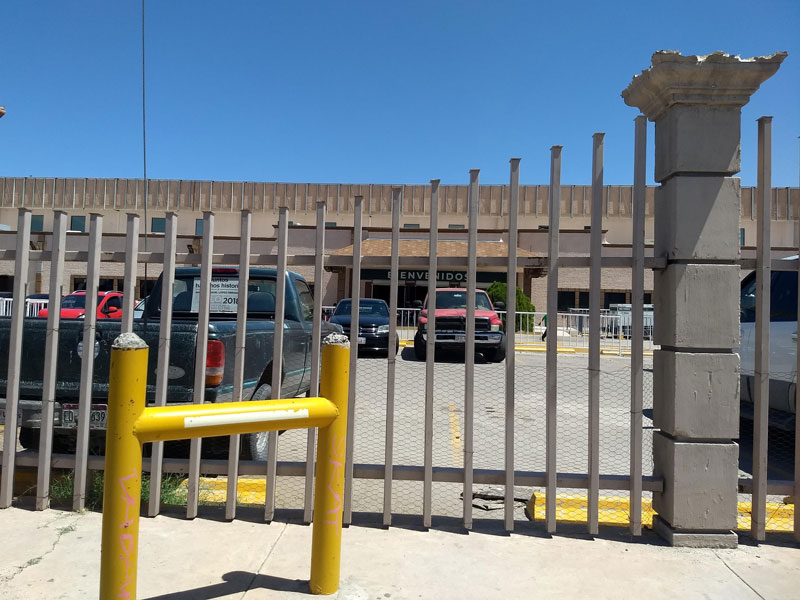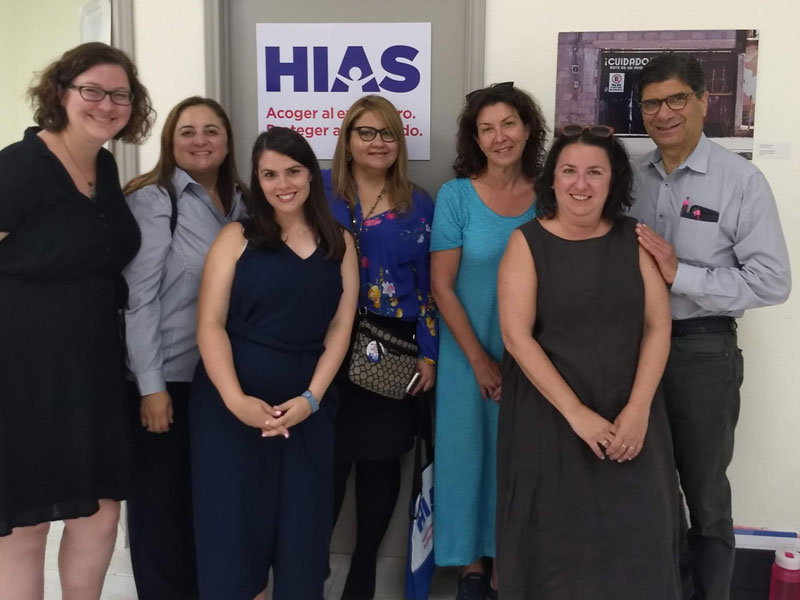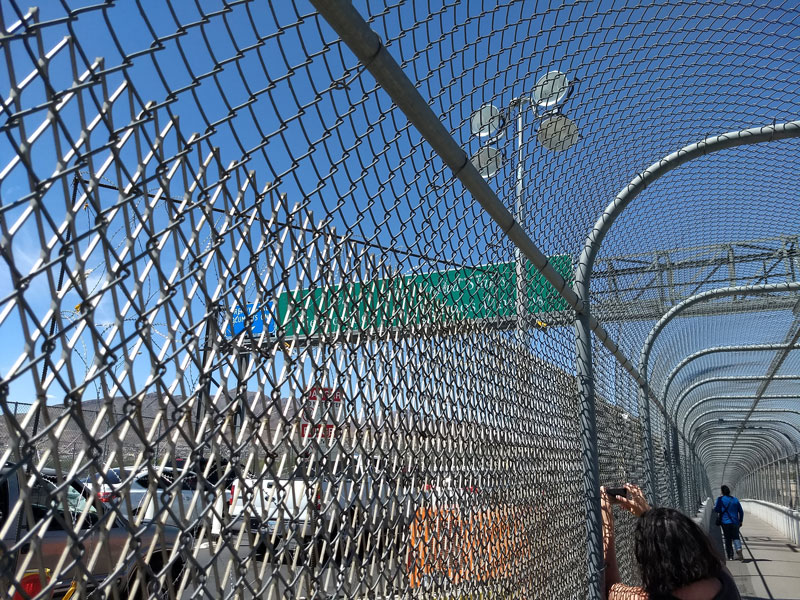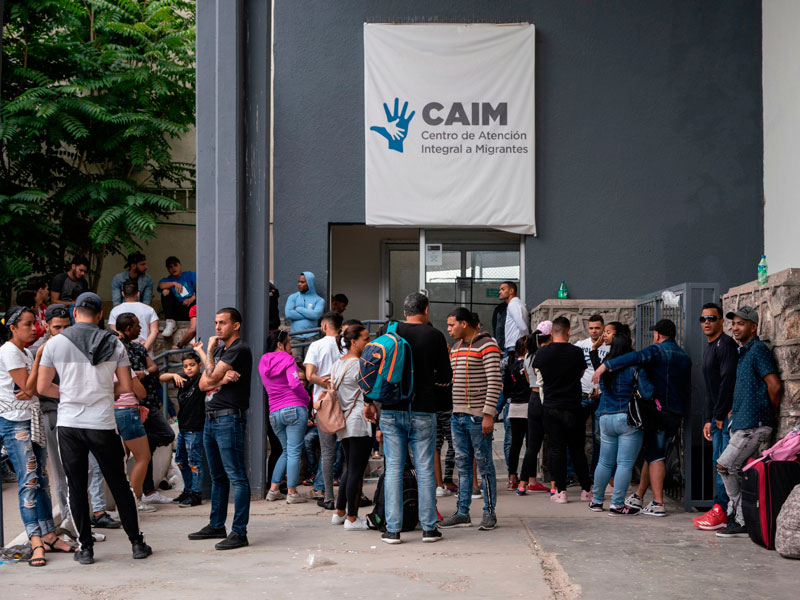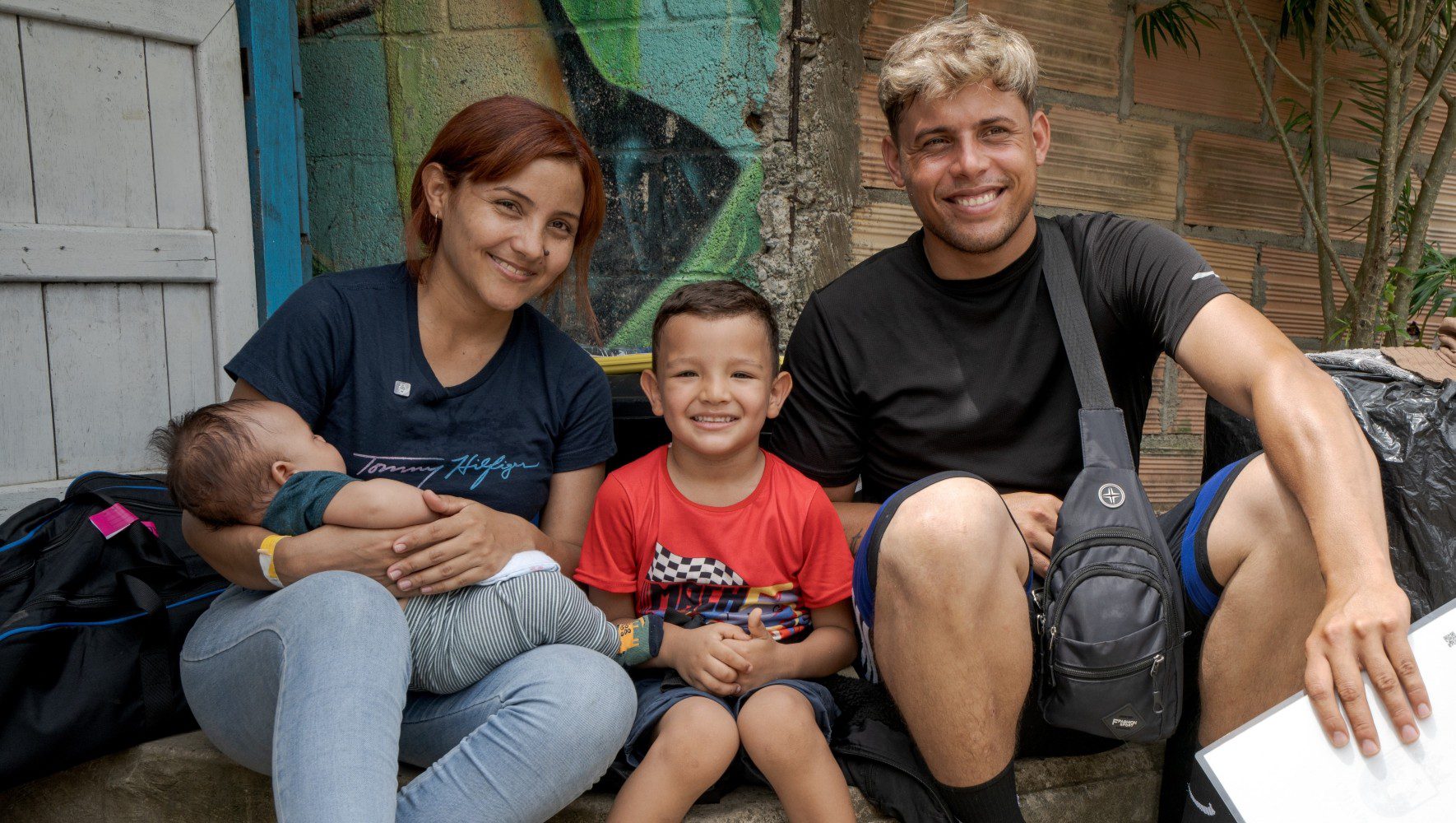At the Border of Hope and Despair
Sep 06, 2019
Late last month, I found myself face to face with both the travesties occurring at the Southern border and the efforts of HIAS to provide protection and dignity to asylum seekers. As the recently elected Chair of the Board of HIAS, I wanted to visit El Paso, TX, and Juarez, Mexico to gain a first-hand look at the situation and I now bear witness as well as a responsibility to tell the story of what is transpiring.
Unquestionably, the biggest current challenge is to provide asylum seekers with access to their right to submit their asylum applications and to provide them with safety and protection during this long and arduous process. There exists today a long list of disincentives aimed at deterring individuals fleeing persecution from seeking protection, culminating in the new U.S. policy that requires many asylum seekers to stay in Mexico for an interminable period of time as their asylum applications are being processed. A more recent directive that became effective on July 16 – now under court challenge – actually eliminates the right to file for asylum unless the applicant can show that he/she filed and was denied asylum in a country of transit.
To this end, HIAS attorneys working in both El Paso and Juarez are engaged in a broad range of legal activities, including: legal representation at the asylum merits hearing; legal counseling in preparation for the credible fear interview that is required to launch the entire asylum process; legal advocacy on whether an asylum seeker should be forced to return to Mexico or whether he/she qualifies for the (sadly) more desirable alternative of detention in the United States or even possible parole; and a range of other services specifically aimed at providing legal protection and dignity to people seeking protection from persecution in their home countries.
We spent one day in Juarez, visiting the HIAS attorneys providing legal services largely to Central American asylum seekers now detained in Mexico. We visited Centro de Atencion Integral a Migrantes (CAIM), the Mexican government-run center charged with administering asylum seekers trying to enter the United States to initiate the asylum process; the various agencies in Mexico providing services to asylum seekers subject to the Migrant Protective Protocols (MPP), more commonly known as “Remain in Mexico,” that serves as a de facto deportation initiative, including a migrant shelter operated by the state of Chihuahua to provide temporary protection (normally limited to 15 days) to those in the MPP program.
Back in El Paso, we met with HIAS attorneys embedded in a local community-based rights organization; El Paso Councilman Peter Svarzbein; Carlos Spector an indefatigable advocate for the rights of asylum seekers; and Rep. Veronica Escobar, the Congresswoman representing El Paso who is a leading voice seeking to “rehumanize” refugees. We visited Annunciation House, a house of hospitality for asylum seekers released from CBP detention and HOPE Border Institute, a refugee policy agency of the Catholic Church.
I am immeasurably proud and respectful of the work that HIAS is doing on the border and the passion and dedication of its attorneys in honoring the traditions of HIAS of providing rescue to people whose lives are in danger for being who they are.
It’s difficult not to be overwhelmed, but these are some of the most important things that the trip crystallized for me:
-
The rules and regulations governing the U.S. refugee program now exist as an ad hoc pastiche of thrown together initiatives rather than a rational, consistent policy tied to the national welfare.
-
The current border crisis has nothing to do with our national priorities and everything to do with a cynical, politicized, and utterly fabricated fear of the other.
-
The border crisis is not a harbinger of an open border to immigration, but rather a constantly changing and mean-spirited constriction of time-honored juridical principles that have guided the U.S. immigration system for 70 years.
-
There are terrible overlays of race, xenophobia, income inequality, and ethnic nationalism producing an intolerable system at the border.
-
The entire panoply of current directives is aimed solely at disincentivizing asylum seekers from coming to the U.S.
-
The MPP program is nothing more than a deportation program wrapped in bureaucratic niceties.
-
We have the capacity to admit vulnerable populations in a manner that serves our social, moral, and economic interests.
-
The United States has through political manipulation and economic exploitation been a principal cause for civic and political instability in Central and South America.
-
It is unconscionable to deprive a person, irrespective of alienage, of liberty through a detention system constructed on an absence of due process protections and humanitarian values.
-
There is a right engrained in treaty commitments, basic humanitarian principles, and widely-held religious precepts to allow vulnerable populations to seek protection in the face of persecution in the home country.
But perhaps most saliently, standing in the Chihuahua shelter surrounded by a hundred women and children, I spoke with Sylvia, a woman from Honduras, along with her three children. She was once a teacher but her husband was murdered and she was fleeing the gangs in her home country. By the time that this piece is posted, she will have fulfilled the maximum of 15 days of residence in the shelter. Impoverished, alone, and with dwindling hope of ever presenting her claim of persecution to an impartial adjudicator, she will have been sent out on the streets of Juarez. Her words to me were simply “thanks for listening,” and it is her story and the stories of others whom I met who now haunt my dreams and animate my world.
Minneapolis immigration attorney Robert Aronson is the current chair of the board of HIAS. The trip was organized by Merrill Zack, Vice President for Community Engagement at HIAS. Also joining the trip were Liz Sweet, HIAS Chief of Staff; Rabbi Debra Newman Kamin, the President of the Rabbinical Assembly; and Sheila Katz, the CEO of the National Council of Jewish Women.
